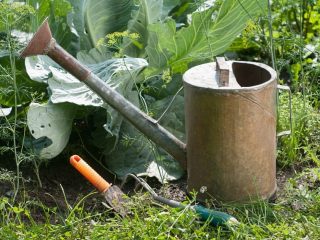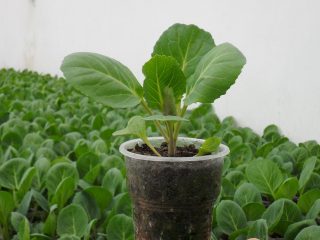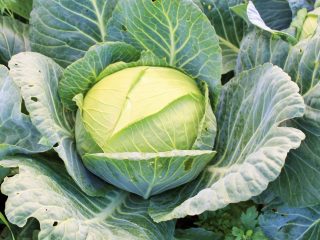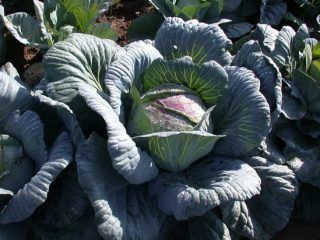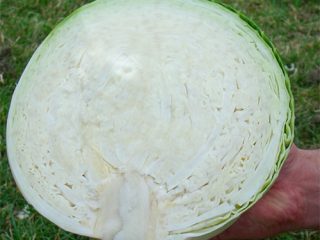Content
- 1 Chemical composition of Chinese cabbage
- 2 What are the benefits of Chinese cabbage?
- 3 Harm of Chinese cabbage
- 4 Contraindications for Chinese cabbage
- 5 Rules for eating Chinese cabbage
- 6 The use of Chinese cabbage in folk medicine
- 7 Chinese cabbage for pregnant women
- 8 Is it possible to have Chinese cabbage while breastfeeding?
- 9 Conclusion
- 10 Reviews about the benefits and harms of Chinese cabbage
Pekin cabbage (Brassica rapa subsp. Pekinensis) is a leafy vegetable from the Brassica family and is a subspecies of the common turnip. The benefits and harms of Chinese cabbage have been known since ancient times - it has been mentioned in Chinese written sources since the 5th century AD, and the history of its cultivation goes back five thousand years. The vegetable was not only a valuable food product, but also a source of healing oil. In the mid-70s of the last century, with the development of new, stem-resistant and high-yielding varieties, Western countries, including the USA and Europe, showed interest in the crop. Russians also liked the special taste of Chinese cabbage, its valuable nutritional properties and ease of cultivation.
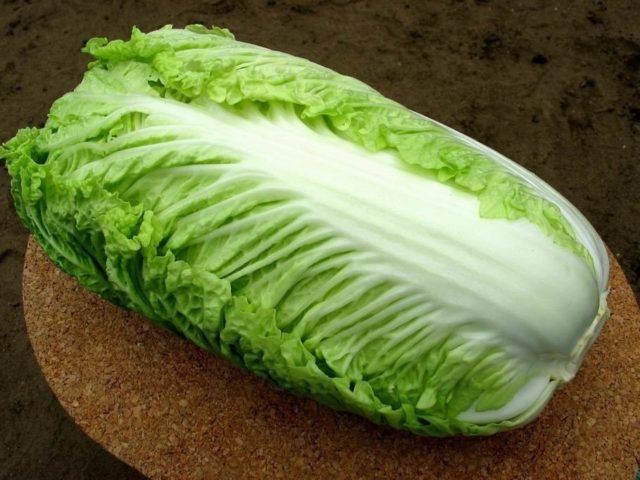
Chinese cabbage is often called Chinese lettuce, but it has nothing to do with the real plant from the Asteraceae family.
Chemical composition of Chinese cabbage
The rich biochemical composition of Beijing salad elevates it to the rank of valuable products, used not only for food, but also for cosmetic and medicinal purposes. Thus, the vitamin C content in Chinese cabbage is 2 times higher than in white cabbage. And the amount of carotene in 100 g of product satisfies the body’s daily requirement by 50%. Beijing salad contains the following elements:
- trace elements – iron, copper, zinc, phosphorus, manganese, sodium, potassium, calcium, magnesium, selenium, sulfur, chlorine, iodine;
- vitamins – B2-9, C, PP, P, E, alpha and beta carotene, A and extremely rare K;
- alimentary fiber;
- proteins, lutein, betaine, lysine;
- carbohydrates, sugars;
- fats and ash substances.
For all its nutritional value, Beijing salad is a low-calorie product that is excellent for dietary nutrition.
What are the benefits of Chinese cabbage?
Nutritionists recommend consuming vegetables as a source of vitamins and dietary fiber. The beneficial effects of Chinese salad on the human body can hardly be overestimated. It is especially useful in the winter season, during the spring-autumn period of vitamin deficiencies and frequent colds. Chinese cabbage has the following properties:
- removes toxins and toxic substances from the body, helps cleanse and normalize the intestines;
- stabilizes metabolism, hormonal levels, rejuvenates;
- stimulates the gastrointestinal tract;
- has a beneficial effect on the condition of the skin, nails and hair, making them healthier;
- has adaptogenic properties, relieves insomnia and chronic fatigue syndrome, relieves the effects of stress and depression;
- strengthens and restores the immune system, is an excellent preventative against colds;
- for type 2 diabetes, Chinese cabbage normalizes the amount of sugar in the blood, reduces the need for synthesized insulin, and alleviates the general condition;
- normalizes high blood pressure in hypertension;
- increases appetite, normalizes liver function;
- removes excess water from the body, increases the percentage of hemoglobin in the blood.
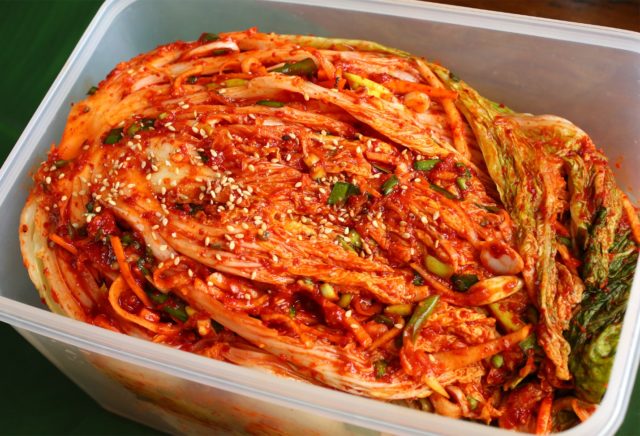
In Korea, Chinese cabbage is fermented with hot spices and herbs to create a dish called kimchi.
What are the benefits of Chinese cabbage for a woman’s body?
For beautiful women, this vegetable is a unique source of youth and beauty. The benefits of Chinese cabbage for weight loss are recognized by nutritionists around the world. In addition, Chinese salad can be used for the following purposes:
- cleansing the body of toxins;
- getting rid of swelling;
- giving the skin a healthy appearance, elasticity, getting rid of wrinkles;
- strengthening hair, restoring its glossy shine;
- fresh juice perfectly rejuvenates and cleanses the skin, eliminates acne;
- You can wipe your face with frozen juice cubes.
Cabbage slows down the absorption of fats and carbohydrates, which helps fight excess weight.
What are the benefits of Chinese cabbage for men?
Chinese cabbage restores the functioning of the genitourinary system:
- normalizes kidney and bladder functions;
- relieves inflammation, including of the prostate gland;
- increases sensitivity during sexual intercourse;
- prevents premature ejaculation.
In addition, Chinese cabbage is excellent for getting rid of “beer belly” and strengthening the body.
Harm of Chinese cabbage
Despite all its benefits, Chinese cabbage can provoke an exacerbation of certain diseases. These include chronic gastrointestinal ailments - pancreatitis, gastritis with high acidity, peptic ulcers, the threat of intestinal bleeding. In addition, this vegetable should not be consumed in combination with drugs or products that thin the blood, such as acetylsalicylic acid. You should refrain from eating dishes with Chinese cabbage if you have colic or flatulence. It should not be combined with any dairy or fermented milk products - this can lead to severe stomach upset and diarrhea.
Contraindications for Chinese cabbage
Chinese cabbage has a number of contraindications for use in food:
- gastritis with high acidity;
- pancreatitis, colitis;
- ulcers of the stomach and duodenum;
- tendency to internal bleeding, menstruation period in women;
- poisoning, diarrhea, infectious diseases of the gastrointestinal tract - dysentery, rotavirus.
Rules for eating Chinese cabbage
Chinese cabbage can be eaten fresh, for making salads, snacks, and sandwiches. It is permissible to steam, boil, ferment and marinate, and bake. During heat treatment, all beneficial substances are preserved.
Chinese salad goes well with herbs, lemon and apple juice, celery, cucumbers, tomatoes, carrots, seeds, citrus fruits and apples. You can make cabbage rolls, soups, stews.
Cabbage juice is an excellent source of vitamins and microelements. The recommended volume is no more than 100 ml per day, on an empty stomach, 30-40 minutes before meals.
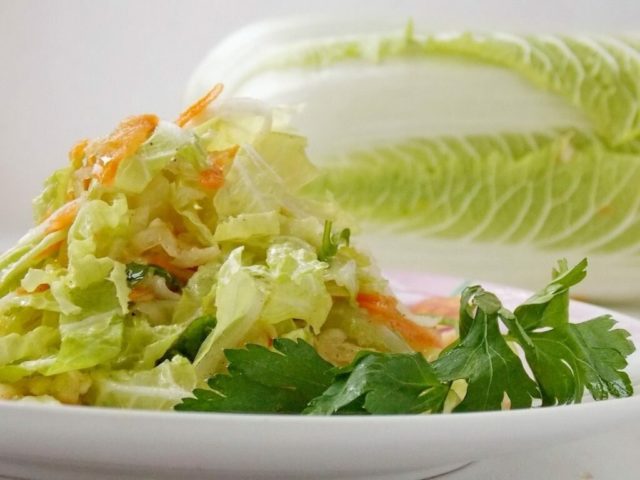
Excellent dietary dinner: salad of Chinese cabbage, herbs and apple or lemon juice
The use of Chinese cabbage in folk medicine
Chinese salad has healing properties. Traditional healers recommend using it for the following ailments:
- A decoction of 80 g of lettuce and 180 ml of water helps against insomnia; they should be boiled over low heat for half an hour and taken at night;
- for bronchial asthma, you can prepare a decoction of the seeds - 10 g per 125 ml of boiling water, keep in a water bath for half an hour and drink half a glass twice a day;
- compress for inflammation and swelling of the eyelids from cabbage juice and cold-pressed olive oil in equal proportions for 20 minutes;
- Scabies and mastopathy will be cured by a salad of Chinese cabbage with vegetable oil.
Regular consumption of this vegetable is the key to long life and good health.
Chinese cabbage for pregnant women
Chinese cabbage is recommended for pregnant women to eat. It saturates the body with essential biologically active substances. Normalizes weight and relieves swelling. Improves mood, gives strength and vigor.
Is it possible to have Chinese cabbage while breastfeeding?
Consumption during breastfeeding improves milk separation, significantly increases its quantity and nutritional properties. Within 7-10 months after childbirth, Beijing salad must be steamed or boiled. Such food retains all the beneficial substances, but does not stimulate gas formation and colic in the baby. After this period, you can add small portions of fresh vegetables to your diet.
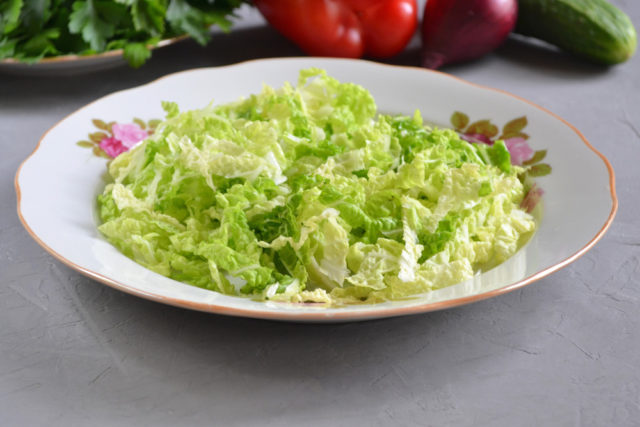
Beijing salad does not cause allergic reactions, it helps remove allergens from the body
Conclusion
The benefits and harms of Chinese cabbage have been known to mankind for more than five thousand years. Modern research confirms that green vegetables actually have a beneficial effect on the body, stimulating metabolic processes, improving blood composition, and clearing away accumulated harmful substances. The presence of Beijing salad on the family table at least 2-3 times a week significantly improves health and gives the body the strength to fight seasonal colds and stress. The vegetable is also recommended for pregnant and lactating women.

